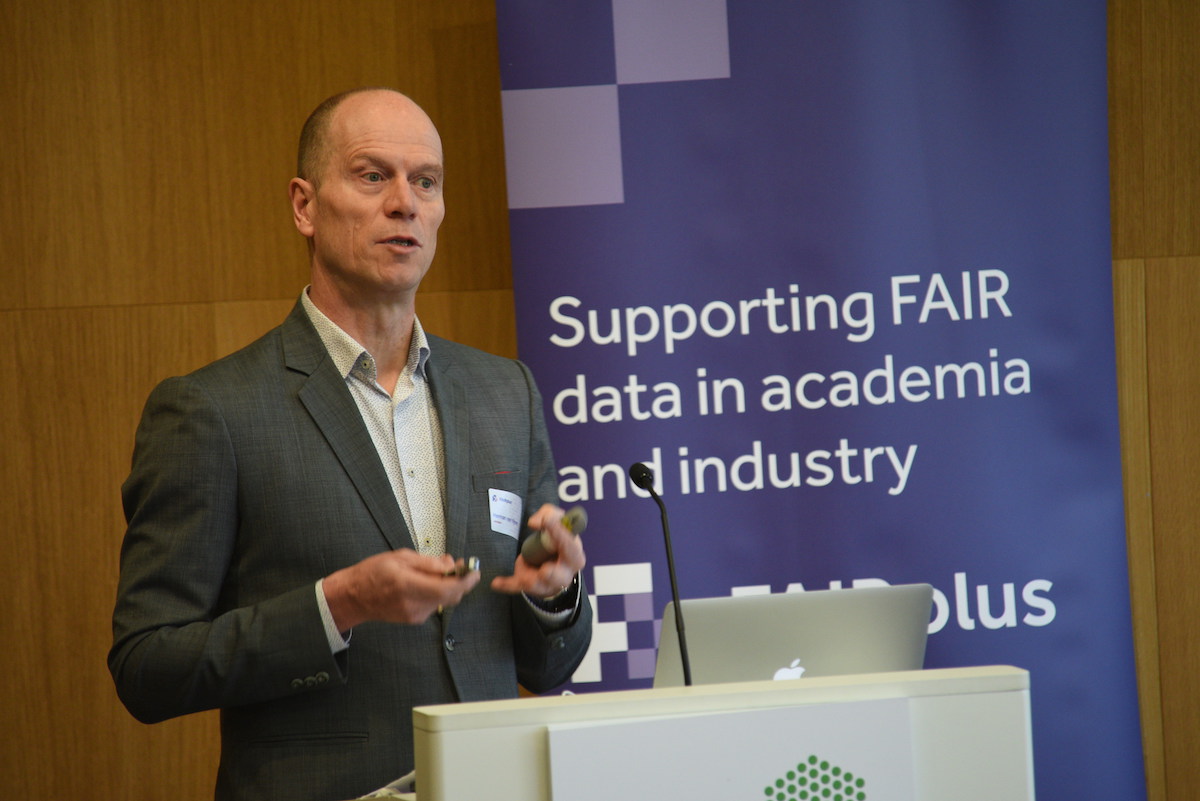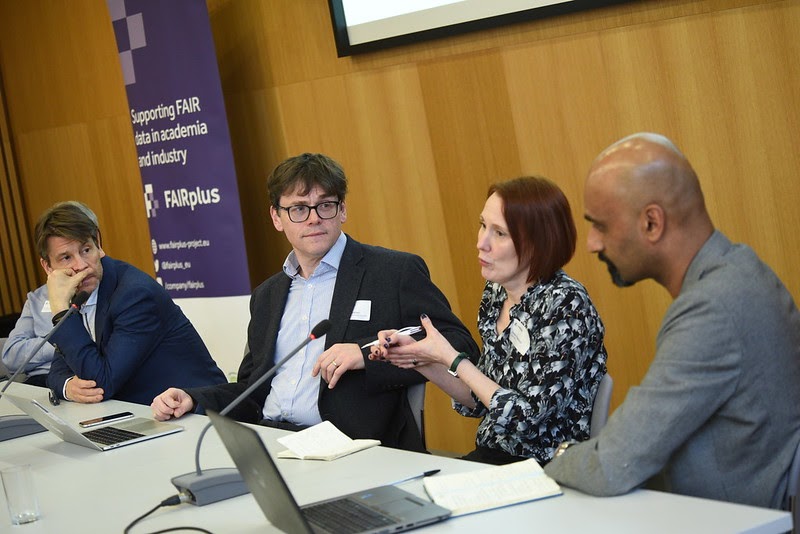First results presented at the FAIRplus Innovation and SME Forum
Nearly one hundred scientists, data managers and IT experts from academia, Small-Medium Enterprises (SMEs) and industry gathered in Hinxton, UK, to discuss the challenges and opportunities in implementing FAIR data principles in life science research.
The first FAIRplus Innovation and SME Forum held on 29 January 2020 presented the practical resources necessary for successful implementation of FAIR data principles. The participants also explored the different ways FAIR data can be implemented in pharmaceutical companies, SMEs and academic teams.

First results in FAIRplus
While the principles of data in life sciences have been growing in popularity within the research community, relatively little attention has been given to the actual technical, scientific as well as cultural implications of making biological data FAIR.
The FAIRplus project aims to develop practical resources to enable FAIRification of data; the first half of the programme presented the key outcomes foreseen in the project:
- The FAIR cookbook, an open, comprehensive resource with ‘recipes’ for making different types of life science data FAIR, presented by Philippe Rocca-Serra from the University of Oxford’s e-Research Centre.
- the FAIR Capability and Maturity Model, a set of guidelines to find the optimum level of FAIR data implementation depending on the needs and resources in each organisation, presented by Oya Beyan from Fraunhofer FIT.
- The FAIRplus FAIRification process and the first four FAIRified datasets from selected Innovative Medicines Initiative (IMI) projects, presented by Tony Burdett from EMBL-EBI.
- The FAIRplus Fellowship Programme, comprehensive FAIR data training to EFPIA members, SMEs and academics, presented by Andreas Pippow from Fraunhofer FIT.
All four presentations focused on hands-on approaches, highlighting the numerous technical and scientific decisions to be taken when adopting and implementing FAIR data principles.
Jane Lomax, from Cambridge-based SME, SciBite said: "Overall the FAIRplus Forum was a fantastic day for us to attend. There are many points at which SciBite can fit into the FAIRification process. We believe that the combination of ontologies, deep learning and FAIR data provide an unparalleled technology set that can directly impact challenges in pharma, agri-science and consumer goods."
Value and sustainability of FAIR data
In the second half of the event discussion turned to the differing approaches to FAIR data in different contexts and organisations. The Flash Talk session first provided an overview of how FAIR data can bring value to businesses. The session featured seven SMEs who presented how they use FAIR data and what role FAIR data have in their companies. Many of the presentations highlighted the importance of scaling up the FAIRification effort to make it sustainable in the long term.
Flash talk presenter, Ted Slater from Elsevier, said: "The FAIRplus Innovation and SME Forum was an outstanding event because of the high concentration of FAIR data experts present. It's rare to have access to that much hands-on experience and deep understanding with FAIR in one place, and I came away with lots of actionable information and insight. I canât wait for the next Forum."
Two panel discussions enabled participants to engage in active discussions. The first one explored what FAIR data means in different settings. The panellists — representatives from organisations offering or using FAIR data services — also warned against short-term calculations. In their experience, the impact of FAIR data in the short term is limited, compared to the long-term value resulting from systematic implementation of FAIR principles.
The second panel brought together people from different initiatives in FAIR data (FAIRsFAIR, GoFAIR, FAIR4Health, Pistoia Alliance and FAIRplus) to discuss their priorities and approaches to supporting the adoption of FAIR data in industry and academia.

The event concluded with a keynote presentation from Carole Goble from the University of Manchester, one of the authors of the seminal paper that introduced the concept of FAIR data. In her talk — FAIR History and the Future — Goble explained the initial intentions of the creators of the FAIR data principles and discussed the challenges in adopting FAIR data at different levels: at the individual level, at the level of a research team, research community and society at large.
One key topic ran through both panels and appeared in many presentations: the importance of a cultural shift. Serena Scollen, the FAIRplus Project Coordinator, summarised the discussions throughout the day:
“There are many technical or regulatory aspects we need to take into account and it’s great we could discuss them today with our colleagues and partners. But the key to wide adoption of FAIR data principles is our research culture. In ten year’s time, I’d like to see the FAIR principles ingrained in the way scientists work with and manage data. We should be talking less about how and why, and instead just routinely doing it. I believe the activities and results in FAIRplus help us to get closer to that point!”
FAIRplus SME and Innovation Forum: Implementing FAIR data principles in industrial life science research, 29 January 2020, Hinxton, UK.
- Presentation slides
- Photos from the event
- Full programme
- Programme of the Flash talk session
- Video recording of the keynote speech by Carole Goble
Posted 7 February 2020 | Back to the news page
